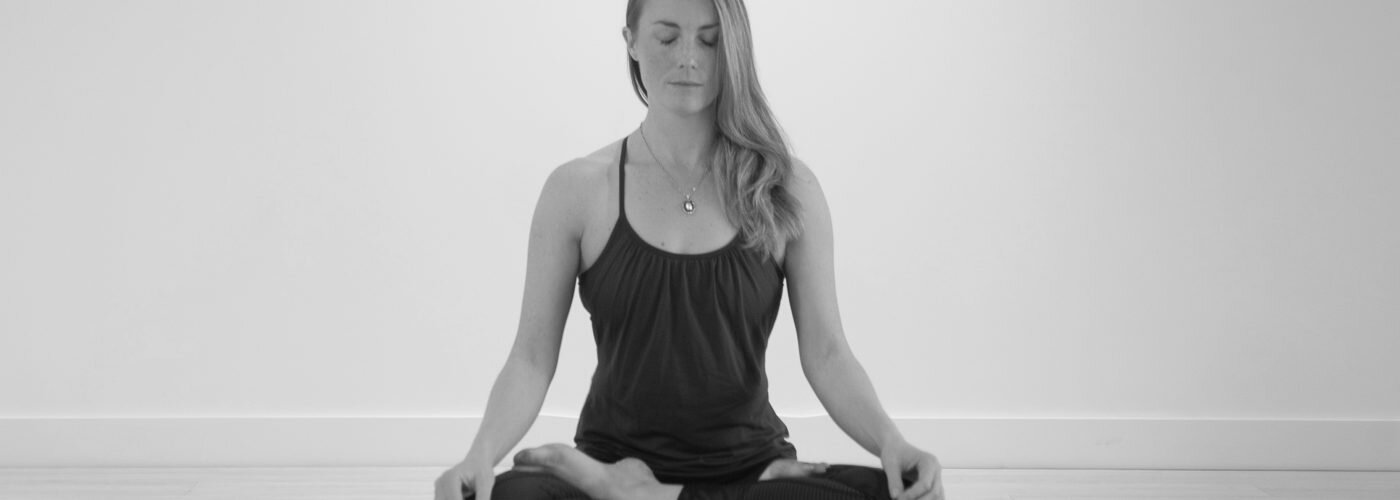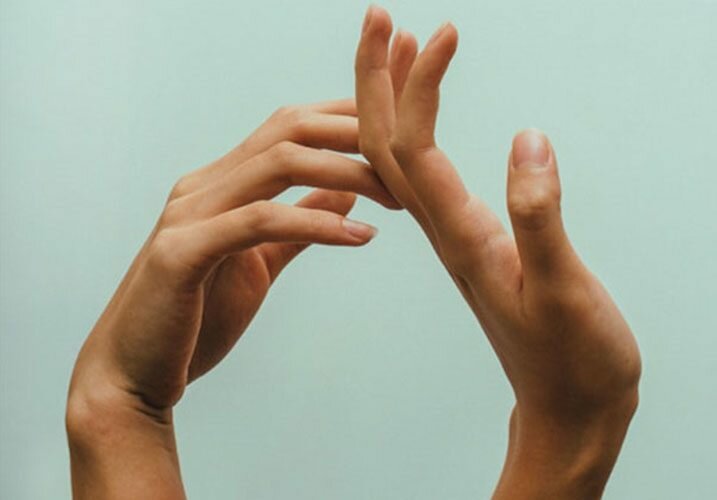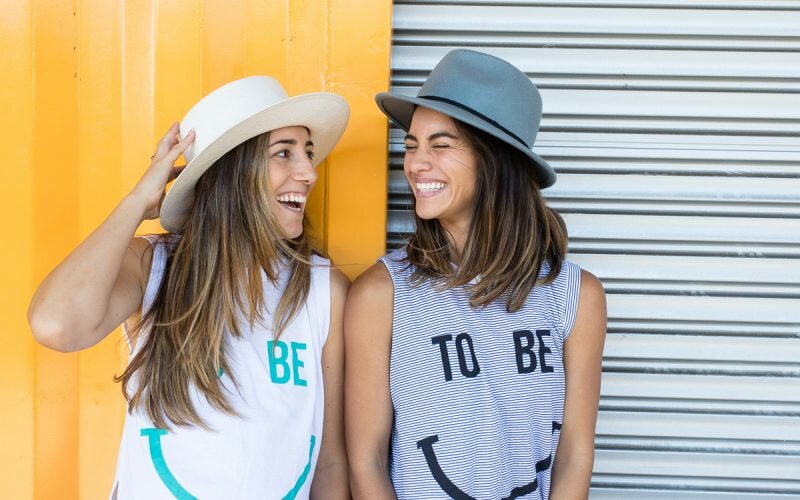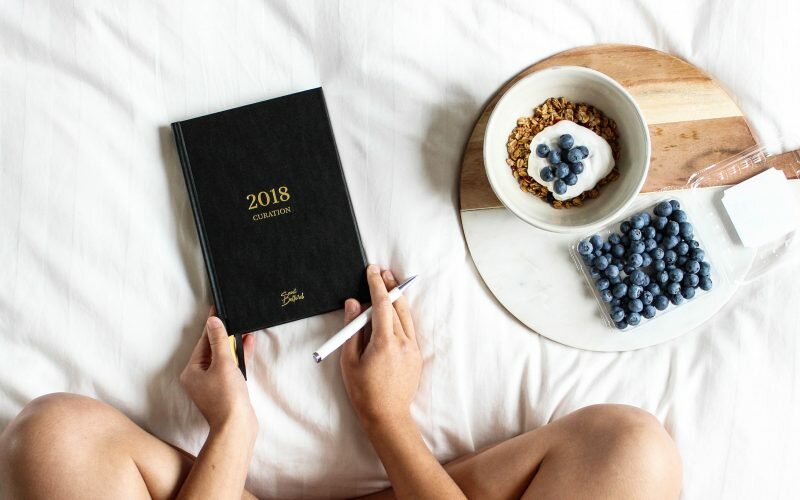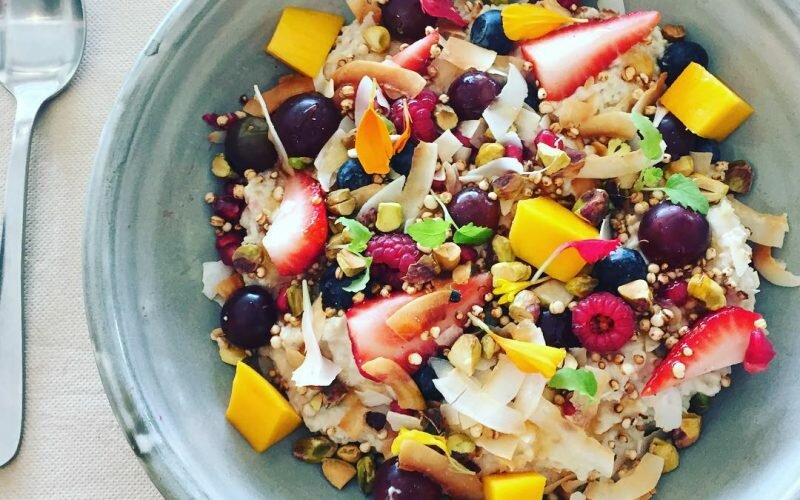Self-love is not an easy task. For most of us there have been those defining moments in our life where our thoughts have turned negative and our relationship with our body becomes strained. At times, those moments turn into months then years. We are extremely grateful to Rosie for sharing her personal journey towards recovery.
I preface this with the acknowledgement that this is one of the hardest things to be able to put in writing, and to put out there for the public eye. Anyone who has suffered an eating disorder, or who knows someone who has, will have insight into the private nature of such an illness, a desperation to hide behind it, and to at all costs deny its existence. Having said this – I know that the greater awareness and support that is out there, the more sufferers and their families and friends will be able to seek the right advice and help.
I first suffered anorexia as a 15-year-old; I remember having a hip injury and not being able to run, play hockey or any of my usual active pursuits. This went on for months and we weren’t able to get to the bottom of it; the longer it went on, the more aware I became of my creeping weight on the scales. I had been a competitive runner all of my life, running cross country for school and state, as well as athletics in the middle- longer distances. Not being able to run, I became acutely aware that if I wasn’t moving as much, I needed to eat less (we learnt this in year 9 science). It didn’t help that one of my best friends at the time, who was an amazing dancer, beautiful and popular, had told me of her scale weight (after having had glandular fever and being unwell for a few months); she was sitting at around 47kg. I jumped on the scale to find to my disgust, I weighed in at 53kg. (Yes, I thought this was heavy, having compared myself and looked up to this friend all of my highschool life). And so began a life of constant worry about dress size, scale weight, fat and calorie content, scrutinizing every label, and constant sleepless nights as to whether or not I would wake up lighter or heavier the next morning. I was unable to participate in any sport still, as my hip grew sore, and my weight dropped further, weighing in at around 40kg at the worst point mid-year 12. I was a perfectionist and drove my energy into my school captainship and year 12 studies in the absence of my normal activities. This was a pretty low point in my life, suffering deep depression, anxiety, and feeling very alone. Things did get better after high school; the threat of hospitalization and the every increasing stress, worry and sadness my illness placed upon my family, was what had finally gave me the courage to fight it head on.
When I eventually could exercise again, I first turned to running, but with my obsessive nature leading to overtraining, I would end up with Achilles issues off and on, so when my sister suggested I buy a bike, (she was a professional cyclist at the time) I didn’t hesitate – and my running turned to triathlon, a love affair that lasted nearly 10 years. Looking back now, most of my triathlon life I spent undernourished – though had got back to a healthy BMI, but trained a lot (20 or more hours a week) on very little fuel. I had the pleasure of meeting my coach Beverley Thomas in my mid 20’s, who sat me down and gave me a good talking to about nutrition – and I realized that if I wanted to have a crack at being any good, I needed to treat food as fuel, and learn to eat to match my training needs. Her approach was sensible but gave me enough motivation and assurance, that I could improve my ability to endure longer and harder training sessions, as well as recover better. Suddenly I could keep up on the longer rides, and last the end of 100km+ rides without being dropped off the end of the pack somewhere between Mordialloc and black rock! Triathlon had really made me see just how abnormal my eating habits had been- to be surrounded by healthy, fit individuals who weren’t shy to down large quantities of food – was a really positive influence on my training and eating behaviours. With Bev, I had competed in a couple of half ironman distance races and won a few local rounds of Gatorade races, and my favourite of all, the Portarlington triathlon. Late in 2010 a niggling knee injury stopped me running and cycling, and after 12 months of rehab and failed attempts to make a comeback, I opted for surgery. This turned out to be the end of my triathlon career, but the start of a whole new appreciation for my body. I had gotten out of the habit of flogging myself for 2-3 hours a day, and into the habit of nourishing my body with gentle- moderate exercise, and particularly found yoga, which has been the icing on the cake in terms of learning to listen to, love, and nourish my body. I now practice yoga daily, run 4-5 times per week, and work in the gym 4-5 days a week, working on general conditioning and building a strong and sound body. Since the uptake of yoga, I have learned not to be so hard on myself; to back off when I am exhausted (it has taken adrenal/ chronic fatigue for me to REALLY learn when to pull back!) and to stop the flow of negative mind chatter that bubbles under the surface, when a negative body image prevails. Yoga has changed my life, my attitude, and my body ( I haven’t had a running injury in 2 years!) so much so that I decided to open up my own yoga business – Rise Yoga and Wellness, as a side to my usual work as a physiotherapist. We have been open around 6 weeks, and the business is growing more and more each week. One thing that I really wanted to come out of this was awareness, and that my illness was not in vain – if I can help just one individual to move past their darkest days, then my whole experience has been for a good reason, and not in vain. Rise Yoga has partnered with the Makeup Free Me foundation (whose funds go directly into the Butterfly Foundations Programs – our national eating disorder foundation); we pledge to donate $1 from every student’s class fee, every visit, to this amazing foundation, raising awareness and money to nurture positive body image in young women and girls. We have a goal to raise around $50,000pa for MFM, when the business begins to grow and expand! If I have one message, it’s that we are not our past, or our future – we are who we are right now, and with the right attitude, support and elbow grease, anything is possible. Namaste.
If you are living with an eating disorder and would like to talk to someone please contact The Butterfly Foundation on 1800 33 4673
The Butterfly foundation for eating disorders; their vision and mission is to live in a world that celebrates health, well-being and diversity.
